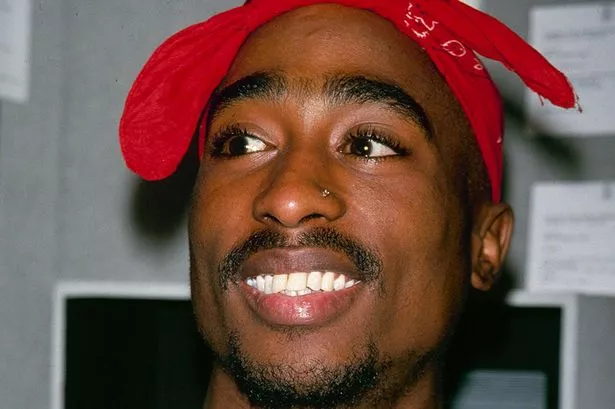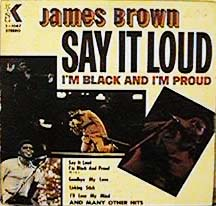IANA Blog- December 2024
Blog
Happy December,
As we close out the year, I wanted to focus this final blog on something that I noticed during the second week of December. During the Summer, I wrote a blog on the Kendrick Lamar-Drake feud. This December, Kendrick Lamar released a surprise album, GNX. It is his first hip hop album released not from his former record label, Top Dawg Entertainment. Another hip hop artist, Doechii is one of the up-and-coming hip hop artists out today and is one of my coworker’s favorite artists right now. I’ve also listened to her music and I became a fan. Listening to her music is very throwback to the 90’s Boom Bap style and for those that don’t know, 90’s Boom Bap will always be one of my favorite sub-genres in Hip Hop. She is signed to Top Dawg Entertainment and she released a mixtape this year called Alligator Bites Never Heal, which received critical acclaim. Kendrick’s album also received critical acclaim as well.
A couple weeks later, after Kendrick was receiving praise for his latest release and Doechii was performing on Tiny Desk, I saw people on social media, mostly Twitter, posting some very stupid comments. They referred to Kendrick’s music as “Protest music” and “Free the Slaves music,” like an insult. The same insult that Drake used in one of his diss tracks against Kendrick. Of course, I already talked about the feud between Kendrick and Drake a couple months ago. Then I saw these people refer to Doechii as “Harriet Tubman music” as an insult. Not surprised that the people who referred to their music as “slave music,” and “protest music,” were Drake fans, but seeing those stupid comments really got me irritated.
Seeing people say that reminded me of how much people misuse the word “woke.” Speaking of which, they also call any type of music with meaning or any type of consciousness, or they’ll do something as dumb as calling conscious hip hop, “protest music” or “slave music” or “Harriet Tubman music.”
Let me just say that Doechii’s music isn’t considered Conscious at all, at least from what I listened to, like I said it’s a throwback to the 90s, but that’s about it. Maybe because she raps differently from most female rappers nowadays would have people insulting her music as “Harriet Tubman music.” Let me also say that no one should be using Harriet Tubman as an insult, especially if you’re Black. That’s a slap in the face.
Although this is an IANA Blog, I'm pretty sure you all know who Harriet Tubman is…Abolitionist, social activist, hero, freed millions of enslaved Black people through the Underground Railroad, one of the greatest African Americans to ever live…like I mentioned back in the October blog, there was a film about her life that came out back in 2019, starting British Nigerian actress and singer, Cynthia Erivo as Harriet. We should know how much Tubman’s legacy should mean to Black people, especially here in the U.S., so anyone who tries to use Tubman as a punchline for their insult should never be taken seriously, ever.
As far as Kendrick goes, like I mentioned in the blog a couple months back, Kendrick has made conscious hip hop, and some of his best songs have a message or have meaning, which I really appreciate about Kendrick’s music. Yeah, he also has songs that are radio-friendly which I listen to as well, but in my opinion, his best songs are the ones with a certain message, whether it be about racism (“Alright”/“The Blacker the Berry”), colorism (“Complexion (A Zulu Love)”), or fear (“Fear”), so the fact that many of Drake’s fans and other people would go as far as insulting Kendrick’s music as “Protest music,” or “free the slaves music,” is so stupid.
Knowing the history of hip hop, it did start off as party music, especially in the beginning. It was also created in 1973 in the South Bronx in New York City. This music brought Black people together, especially after other genres of music were being “taken away” or “diluted” from Black people. Eventually, hip hop would become more socio-conscious and political, especially with “The Message” from legendary hip hop group, Grandmaster Flash and the Furious Five. This song was considered the first hip hop song to address social commentary. I still remember listening to it for the first time, especially with that hook from member Melle Mel,
Don’t push me, cause I’m close to the edge.
I’m trying not to lose my head.
It’s like a jungle. Sometimes it makes me wonder, how I keep from coming under.
Hearing that blew my mind as a kid…I also saw how hip hop was used as a way to stop violence in the inner cities, and used for movements. I knew how powerful hip hop could be, especially when I heard Public Enemy.
Hip hop group Public Enemy are considered as the founding fathers of Political hip hop. They have multiple songs that address racism in the U.S. and politics and the American media. Some of their well known songs include “Black Steel in the Hour of Chaos,” “911 is a Joke,” and “Fight the Power,” which is considered one of the greatest hip hop songs and one of the greatest songs ever. The song was made for the soundtrack for the legendary Spike Lee film, Do the Right Thing, which addressed racial tension and bigotry in a predominantly Black neighborhood in New York City. If you listen to music from Public Enemy, would you insult their music as “Protest music,” or “Free the slaves music”? Then again, their music has been used for protests, so they probably see that as a compliment.
Hip hop group “N.W.A,” also came to prominence around the same time Public Enemy did. They were known for being one of the founding fathers of gangsta rap. Gangsta rap, in many ways, is different from conscious and political hip hop, but can have the same elements. Both Public Enemy and N.W.A were also seen as “controversial” for their brutally honest lyrics, although N.W.A was also criticized for violent and misogynistic lyrics, but N.W.A really gained controversy when they wrote the song, “F**k tha Police,” which addressed Police Brutality and racial profiling. Would you call N.W.A’s music “protest music”?
Speaking of Gangsta Rap and Political/Conscious Hip Hop, when I think of those genres, I think of the legendary Tupac Shakur. One of my favorite hip hop artists ever, a legendary artist who inspired Kendrick. So many classics such as “Keep ya Head Up,” “Brenda’s Got A Baby,” “Changes,” and “Dear Mama.” Just like Kendrick, I always appreciate Tupac’s music because of the message he has. Even though he also had violent lyrics and the gangsta rap he was synonymous with, he always addressed social justice, political issues, and marginalization among Black people. If you considered Kendrick “Protest music,” I don’t even want to know what you think about Tupac’s music.
The more I think about it, what is the problem with “protest music”? There’s nothing wrong with that, especially considering that art and music played a part in many of the famous social justice movements. When I think of the music and songs that came out during the Civil Rights movement and the Black Liberation movement, I think of Nina Simone’s “To Be Young, Gifted and Black,” I think of Sam Cooke’s “A Change is Gonna Come,” I think of Marvin Gaye’s “What’s Going On,” and of course you can’t talk about either of those movements without James Brown’s “Say it Loud- I’m Black and I’m Proud, Part 2.” In my opinion, these songs were more than just protest songs, they were anthems, they were songs that provided the soundtrack for the movement.
Music has played a part in the Anti-Apartheid movement. So many artists and musicians wrote and performed songs that brought awareness of Apartheid in South Africa, or of Revolutionaries and Freedom Fighters who fought in the struggle. From legendary musicians/artists like Stevie Wonder, Gil Scott-Heron and Peter Gabriel, to South African legends like Miriam Makeba and Hugh Masekela, to legendary Nigerian artists like Sonny Okosun and Majek Fashek have written and performed songs about Apartheid. Artists have also rejected performing in South Africa, as a way of supporting the fight against Apartheid.
Speaking of Nigerian artists, when I think of “protest music” to come out of Africa, I think of the legendary Fela Kuti. Creating Afrobeat music and using his music to speak on social issues in Africa, especially in Nigeria, not being afraid of any backlash, especially against the Nigerian government.
…and I already spoke about the legendary Bob Marley back in February…
…the more I think about it, I think more of what Buju Banton said about Afrobeats music, back in my August blog, and thinking more and more about how right he was. It seems that a lot of people, no matter what part of the world they’re from, hate listening to music with a message, or conscious music, that they have to insult it as “protest music.” Don’t get me wrong, I’ve heard reasons why people don’t like conscious hip hop, which I understand, but there are also some reasons where I’m like, “Are you kidding me?”
Although I have problems with this movement and how it has been co-opted, I can’t forget about the Black Lives Matter movement. I remember Kendrick’s song “Alright,” when it came out. I was listening to that song any chance I got, but also I remember the song was being played at multiple protests. I was thinking, “Damn, Kendrick gave us an anthem!”
Nina Simone said it herself, “An artist’s duty, as far as I’m concerned, is to reflect the times.” Music and art has and still played roles in social justice movements. Amorim Baraka also says that, “The artist’s role is to elevate the consciousness of the people, to help them understand life, the world, and themselves more fully.” I feel artists can definitely make an impact when it comes to social justice, which is why I call myself an artist.
What disappoints me about the insults is how many Black people are using it as an insult. I’m not surprised by non-Black hip hop fans, especially White hip hop fans who say this, but the Black hip hop fans who do, are disappointing and disgusting to see. More anti-blackness and self hatred, in my opinion. Not to mention that Doechii is a dark-skinned Black woman, so the insults to her are rooted in anti-blackness, self hatred and colorism. Luckily, I’m blocking anyone online who calls Kendrick or Doechii’s music, “protest music,” or “free the slaves music,” or “Harriet Tubman music.” I don’t need to see that negativity online.
Look, we need music to dance and song and vibe to…but we also need great, conscious music that can inspire us to do something. You can look dumb and call it “protest music,” but for me, I’ll continue to listen to my “protest music,” and elevate my consciousness. But that’s just me.
What do you guys think about the last blog for 2024? Let me know.
Also, Happy New Year…






Comments
Post a Comment